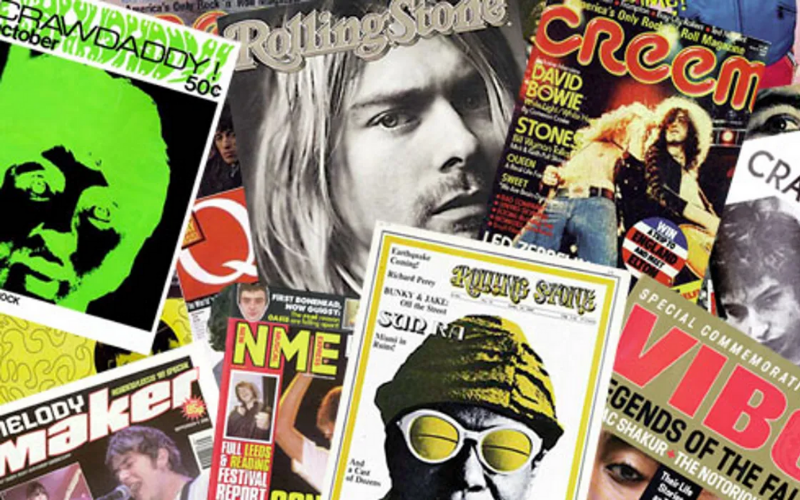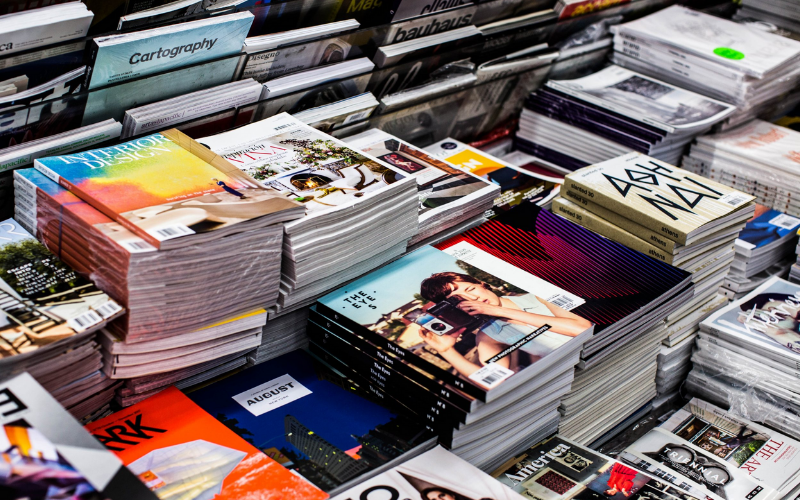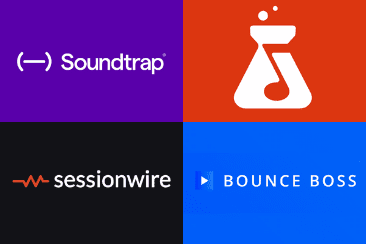Some have argued being a music journalist isn’t as significant as it used to be. With streaming services recommending music based on our algorithms, why read reviews? In our opinion, however, music journalists are more important than ever.

The sheer quantity of music produced at present means many fans turn to journalists to provide reliable guides through the industry’s maze. Journalists are also highly valued by musicians for their ability to expand an artist’s reach and support their brand and reputation. Seen as objective and knowledgeable, excellent music journalists are highly sought after.
If you’re here, we’re assuming you love music. You’ve got a lot of opinions and friends in the industry. You’ve got a knack for writing, admire the work of tastemakers in the industry, and might have even reviewed some amateur live performances before. But, how do you make the transition from fan to critic? How do you choose your niche?
This article will explain exactly how to become a music journalist. What qualifications or experience might help, and expected salaries for music journalism. By the end, you’ll know everything you need to know about how to be a good music journalist. Let’s go!
What Is A Music Journalist?

A music journalist is a writer with a music specialism. Music journalists can work freelance as bloggers or vloggers. Or, on behalf of media organisations i.e. newspapers, online magazines. Typical work would include reviews, interviews, industry news, opinion pieces and features.
Music journalism is a notoriously competitive field so it is wise to be resilient – opportunities may take a while to come through. It’s important to appreciate that journalistic skills trump music jargon. Be concise, focus on the Who, What, Where, Why and When.
Furthermore, don’t forget the basics after being blinded by admiration for the artist you’re interviewing. Always consider what your editor and audience want answers to. Rather than being entirely led by your personal interests.
What Does A Music Journalist Do?

A music journalist has many responsibilities in their job role, let’s go over them.
Research & Report
As a journalist, researching and information gathering will be key to your day to day activities. While writing a feature or opinion piece can involve a little more personal commentary, your work should be thorough and well-researched – regardless of the brief.
Depending on your role, you may have to seek out stories, interviewees, or performance review opportunities. Having an ear to the ground and contacts around your city is vital for any aspiring journalist.
Interdisciplinary Communication
There are many mediums for music journalists to choose. The more skills you have – art, photography, research, musicology, or video editing – the more strings to your bow (pun intended). Photojournalism, for example, comprises a sector of its own within the music industry.
Most music journalists are expected to be music photographers. Especially at more junior levels or smaller organisations, but you may want to home in on this as a niche. You can read more about this in our Music Photography Guide.
Some music journalists have reported briefs where they were asked to post a review solely in emojis on social media. Music journalists will always be expert cross-channel communicators.
Expect Erratic Schedules
As a journalist, working to very tight deadlines (i.e. having a 2000-word review ready by 9am the morning after the gig) is the norm. There are likely going to be periods of high-activity and quieter times.
Expect late nights, especially as a reviewer, and irregular hours. This is especially true for freelancers or writers on weekly or monthly publications.
Personal admin and organisation is key to manage your time effectively and ensure deadlines are met.
How To Become A Music Journalist

Unlike being a lawyer or doctor, music journalists are frequently hired without degrees in a relevant field. Provided they have good work experience.
However, degrees can be useful for practical skills, networking and learning more about the industry if it is unfamiliar terrain.
Going solo, attending university or seeking employment at a big organisation are all avenues worth exploring.
What Qualifications Do You Need To Be A Music Journalist?

You don’t! However, there are certainly degrees that are highly relevant to the researcher and reporter roles.
Journalism
It goes without saying that developing writing etiquette, journalistic style, and research skills are highly relevant.
Some universities even have specialised music journalism courses. Many allow greater freedom for final year students to build a niche portfolio of work, such as music photography.
Music
Some of the best music journalists in the business are current or ex-musicians.
A thorough grounding in history of music, arrangements, instrumental timbres and sound engineering are essential for speaking with confidence to artists and their fanbase.
Marketing & Business
Frequently, music journalists work freelance for periods of time.
Nailing that knowledge of how to build a personal brand, accounting, and business frameworks can be far more practical than music or communications degrees.
Notable Universities For Music Journalism
Birmingham City University, Winchester University, University of East London and University of Chester are some of the few to offer pure Music Journalism BA courses.
Brighton and Northampton, however, offer combinations of Music and/or Journalism which are also well-established. We’d advise you to choose a university located in or close to a bustling music scene that you want to get involved in.
University should be your stepping stone into the industry. The contacts you make there could result in excellent networks and employment opportunities. Also, you’ll be able to see all your favourite bands way more easily.
For some more recommendations, check out our article on the Top Music Universities In The UK. If you’re based in the US, check out our guide on the Top Music Schools In The US.
How To Become A Music Journalist Without Qualifications

So uni isn’t for everyone – but, you can absolutely get into music journalism without a degree.
An editor at NME famously said that students with journalism degrees would often need more work to remove their robotic style of writing.
This certainly isn’t an industry wide view, but clearly qualifications aren’t necessary to be a good music journalist. Here are some ideas for where to start.
Take Charge
Don’t take no for an answer. If you can’t get a job in a big organisation, then start your own.
There’s no need to wait for permission if you start writing your own a blog or build your own music PR business. You’ll build up a serious portfolio and avoid work paralysis by getting stuck in and taking initiative.
Interview local indie bands, review local performances and soon, you’ll have picked up a host of skills.
Be Active On Social Media & Receptive To New Media Forms
Tweets or posts that gain traction can genuinely attract employers to you.
If you post a thought-provoking tweet on the state of the industry, you could well be approached by the Guardian or New Statesman with a proposition to flesh out those characters into an article.
Equally, editors may post on Twitter or Instagram advertising roles or calls for submissions. Social media has democratised the journalism landscape and (more often than not) good ideas will win out.
Work Experience
As a student, there are often opportunities to intern at music companies. Check out Q, Pitchfork, NME, Drowned In Sound and Stereogum for vacancies.
Experience at a local newspaper or local radio station also looks great and opens doors. Call and email small and medium-sized organisations regarding internships or shadowing.
Entry Level Roles
Some good entry level roles in music journalism are being a Music Photographer for an organisation, working for a Music PR company, a Music Promoter, a production studio or booking agency.
However, often entry-level roles are not advertised as they are filled up with interns. So, the sooner you can get your foot on the ladder the better.
If you’re stuck for where to start, check out Indeed.com, Entertainmentcareers.net or Internships.com.
How To Get Hired As Music Journalist By Your Dream Company

So you want to be the next editor-in-chief at NME or Mojo? How do you demonstrate passion, skill, and results that prove your potential as a music journalist?
Gain some work experience or start building your own portfolio through your own blog or start up. Keep your eyes on social media for alternative routes in through insight days or mentoring schemes.
Have a concise, but sparkling cover letter. Remember, as an aspiring journalist, waffling in your cover letter will almost certainly write off your application. Stress what you can bring to them – skills, commitment, flexibility.
Even if you’re junior, articulating why hiring you would be mutually beneficial is possible. Employers hire junior talent for potential.
Of course you don’t know everything yet, but be sure you can communicate what you are bringing to the table.
Find your niche. Are you skilled in a particular medium, or knowledgeable about a particular genre? If so, use this to your advantage and be sure to state this while applying for (ideally) niche roles.
While being a journalist will involve flexibility and writing about subjects outside of your comfort zone, in-depth specialisms will make you the person people come to when particular industry news stories pop up. Having an ‘expert cache’ is always useful.
Music Journalist Salary

We knew you were thinking it – how much does a music journalist get paid?
Music journalists can expect poor financial remuneration at the junior level. Music journalist salaries tend to be on average £21,000/year for entry level hires.
However, salaries for journalists with more experience and/or at larger companies can exceed £54,000. Star BBC music journalists are frequently noted as earning three-figure salaries.
The average pay for a music journalist would be roughly £33,329/year.
As a freelancer, music journalist salaries are harder to predict, and could well be based on number of words, number of articles or hours worked. You could earn anything between £9 – 17 per hour, based on your rate. So you could be earning roughly on average £20,400 if say you were on £13/hour.
Taking into account additional unpaid work – seeking out opportunities, in marketing and admin – junior freelancers usually earn under £25,000/year. However, this is dependent to a large extent on how much work you seek out and earn so naturally varies.
Famous Music Journalists
Peter Cooper Music Journalist
Peter Cooper is a music writer originally from South Carolina who moved to Nashville in 2000 and joined The Tennessean. He is known for his distinctive voice in country music criticism, characterized by earned insight, gentle wit, and occasional baseball references.
Lester Bangs
Lester Bangs was a music journalist known for his passionate and often irreverent writing style. He wrote for various publications, including Rolling Stone, Creem, and The Village Voice, and was particularly influential in the punk and alternative music scenes of the 1970s. He died in 1982 at the age of 33.
Robert Christgau
Robert Christgau is a prominent American music journalist and critic who has been writing about popular music since the 1960s. He is known for his eclectic taste and his use of letter grades to rate albums. Christgau has written for publications such as The Village Voice, Rolling Stone, and NPR Music, and has authored several books on music criticism. He is considered one of the most influential music critics of all time.
Greil Marcus
Greil Marcus is a music journalist and critic known for his influential writings on rock and roll, particularly his book “Mystery Train: Images of America in Rock ‘n’ Roll Music.” He has also written for publications such as Rolling Stone, The Village Voice, and Pitchfork.
Music Gateway
Journalists are the ones that help promote an artist’s music and are the ones that keep their finger on the pulse in terms of new talent. Music Gateway does just that – I am even promoting us as a brand right now, helping more artists to be heard in a way.
Do you know a band that needs that extra bit of promo or the marketing campaign to ensure they are heard? Why not get in touch and have a chat to explore how we can help your music career take off.
Or do you want to discuss any opportunities such as Sync Licensing, Music Licensing, Music Clearance, Sync Libraries or Music Libraries? Then use this link to book in a call with Sam – Head of Sync Licensing – as a potential lead. We are always happy to talk to musicians like you. Please do get in touch.
That Was Our Guide On How To Become A Music Journalist

So, now you know how to become a music journalist!
We’ve discussed what a music journalist does, routes into the profession, and how much a music journalist earns. Not bad!
Hopefully you’re feeling more confident in your chosen pathway and ready to start putting in the work and making those headlines.
In this day and age, rigorous reporting and research has never been so important. We wish you all the best of luck in your music journalism career! Keep in touch!











